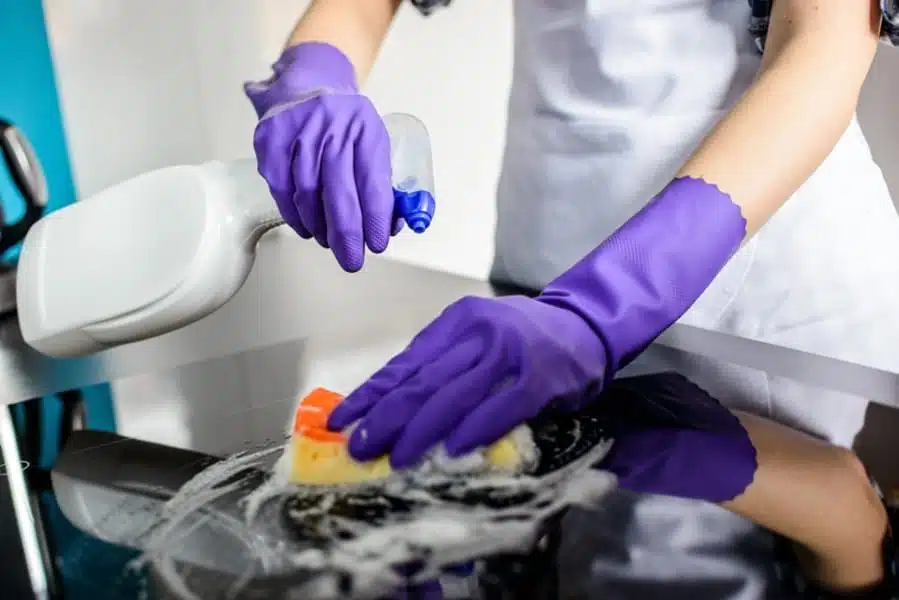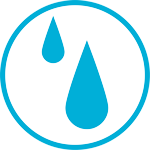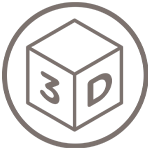What are detergents?
A detergent (plural: detergents) is a substance contained in cleaning and washing agents that helps to remove dirt. The term detergent is often used synonymously with “surfactant” or simply equated with the term “cleaning agent”.
According to Regulation (EC) No 648/2004 of the European Parliament, “detergent” means a substance containing soaps and/or other surfactants intended for cleaning and washing processes. These substances can have different aggregate states (liquid, powder, paste, bar, tablet, shaped pieces, figures, etc.).
How do detergents work?
Detergents reduce the interfacial tension between the surface to be cleaned and the dirt through the solvent, which in most cases is water. They also act as emulsifiers. These are auxiliary substances that are used to mix and stabilize two naturally immiscible liquids to form an emulsion.
Overview of the functions of detergents and surfactants
- Support for surface wetting with water and mixing dirt with water
- Influencing the pH value of the surface to be cleaned,
- to dissolve the hydrogen compounds that cause dirt to adhere to the surface
- to stimulate the decomposition of dirt-forming substances
- Increasing the surface area between the cleaning agent and dirt for a cleansing foam formation
- Reduction of water hardness: This promotes surface moistening with water and thus the removal of dirt particles
- Decomposition of the dirt by stimulating an oxidation process
What examples of the use of detergents are there?
- Washing aids that are used for soaking, rinsing or bleaching textiles
- Fabric softeners that change the feel of textiles
- Cleaning agents such as household cleaners/all-purpose cleaners or other agents that are used for cleaning different surfaces
- Cleaning and washing agents for all other cleaning and washing processes
- Cosmetics to remove skin impurities and dirt
Detergents in cosmetics
The use of detergents and surfactants is fundamentally sensitive, as they come into contact with the skin either directly as detergents or through contact with textiles. This makes it all the more important that detergents used in cosmetics and drugstore products in particular are optimally protected against contamination during production. This is precisely where the legal regulations for contract processing come into play, and Ebbecke Verfahrenstechnik complies with them very precisely and carefully.
Regulations for contract processing
Ensuring sterile production conditions plays an important role in the manufacture of detergents. Allergic reactions, inflammations and illnesses that can be caused to consumers by contaminated products must be avoided at all costs. At Ebbecke Verfahrenstechnik’s production facilities in Bruchköbel, Schöneck and Burbach, the focus is therefore on procedural safety and sterility in the processing of detergents in order to be able to reliably offer customers high-quality products. We have been an experienced partner to the cosmetics industry for many years and have established various mechanisms for analyzing and controlling processes and products as part of our strict quality management system, which is geared towards the needs of our customers. This enables us to continuously ensure that the highest customer requirements and quality levels are met.
Would you like to find out more about sterile production at Ebbecke Verfahrenstechnik? Simply contact us, we will be happy to take the time for a detailed consultation.


















